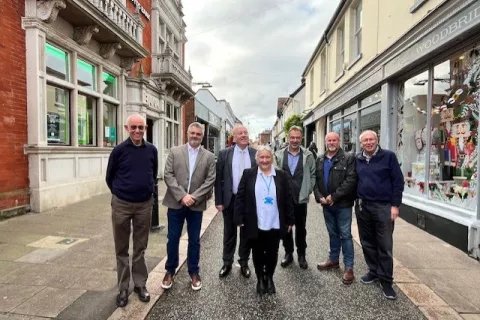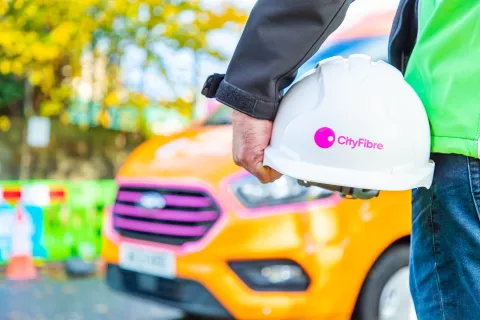
Project Gigabit
First 'Project Gigabit' customers in Suffolk connect to CityFibre's full fibre network
12 December 2024
Following promises in the 2015 Budget back in March, the Government has finally confirmed plans to introduce a 10Mbps Universal Service Obligation (USO) for all broadband services across the UK by 2020. With the Government already under pressure to complete the superfast broadband rollout to the final 5% of the UK’s most hard to reach communities, we ask will this latest USO help to achieve that goal or cause further issues?
 Darren Farnden, Head of Marketing[/caption]
Following promises in the 2015 Budget back in March, the Government has finally confirmed plans to introduce a 10Mbps Universal Service Obligation (USO) for all broadband services across the UK by 2020. With the Government already under pressure to complete the superfast broadband rollout to the final 5% of the UK’s most hard to reach communities, we ask will this latest USO help to achieve that goal or cause further issues?
Commenting on the plans Prime Minister David Cameron said: “Access to the Internet shouldn’t be a luxury; it should be a right – absolutely fundamental to life in 21st century Britain. That is why I’m announcing a giant leap in my digital mission for Britain. Just as our forebears effectively brought gas, electricity and water to all, we’re going to bring fast broadband to every home and business that wants it. That’s right: we’re getting Britain – all of Britain – online, and on the way to becoming the most prosperous economy in the whole of Europe.”
Darren Farnden, Head of Marketing[/caption]
Following promises in the 2015 Budget back in March, the Government has finally confirmed plans to introduce a 10Mbps Universal Service Obligation (USO) for all broadband services across the UK by 2020. With the Government already under pressure to complete the superfast broadband rollout to the final 5% of the UK’s most hard to reach communities, we ask will this latest USO help to achieve that goal or cause further issues?
Commenting on the plans Prime Minister David Cameron said: “Access to the Internet shouldn’t be a luxury; it should be a right – absolutely fundamental to life in 21st century Britain. That is why I’m announcing a giant leap in my digital mission for Britain. Just as our forebears effectively brought gas, electricity and water to all, we’re going to bring fast broadband to every home and business that wants it. That’s right: we’re getting Britain – all of Britain – online, and on the way to becoming the most prosperous economy in the whole of Europe.”
With network projects in over 60 cities and construction underway to reach up to 8 million homes

Project Gigabit
12 December 2024

City communications
3 December 2024

Corporate news
1 November 2024